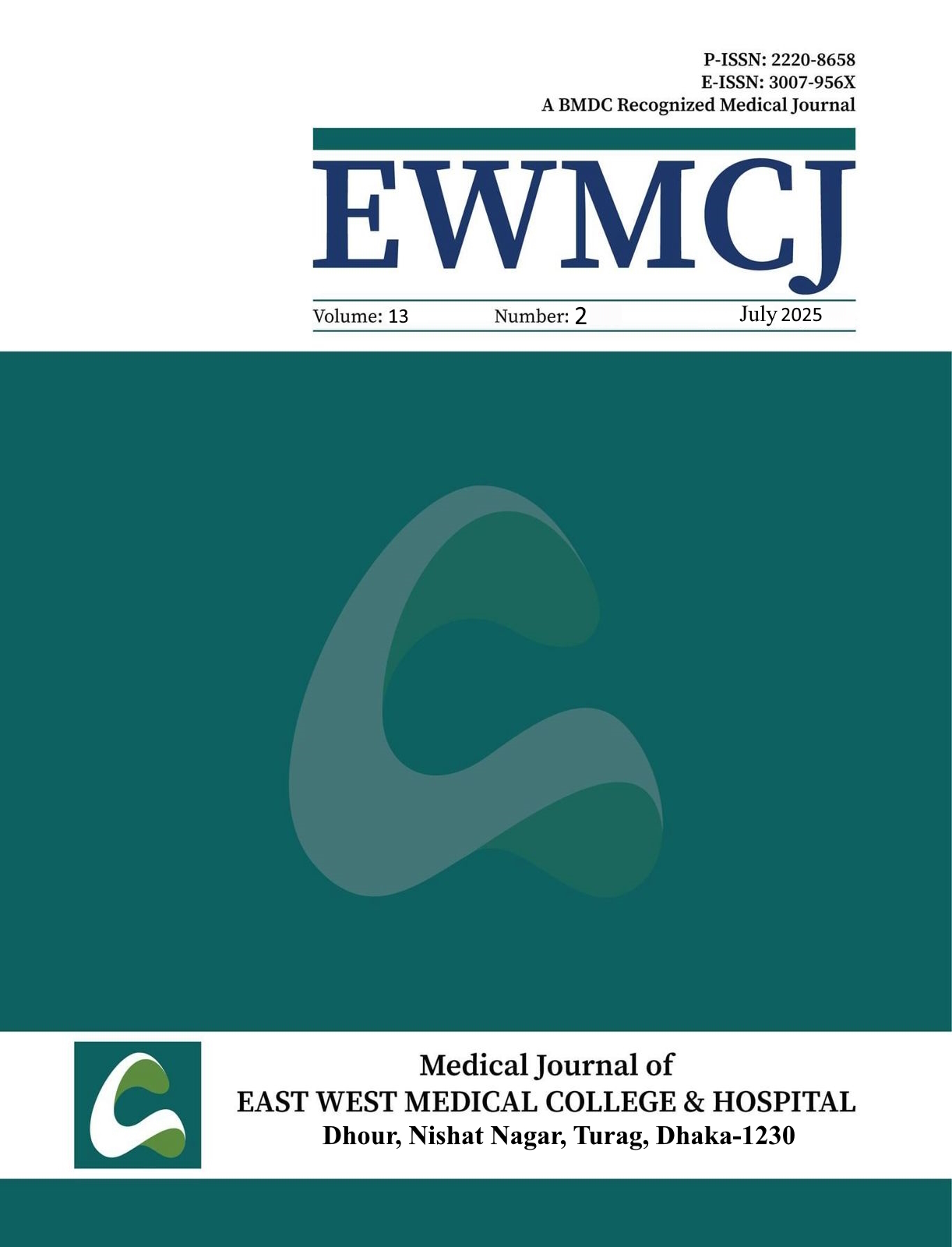Assessment of Serum Lactate and Creatinine Kinase to evaluate mitochondrial dysfunction in autistic children
DOI:
https://doi.org/10.3329/ewmcj.v13i2.79386Keywords:
ASD, Mitochondrial Dysfunction, Lactate, Creatinine KinaseAbstract
Background: Mitochondrial dysfunction and autistic spectrum disorders (ASDs) are closely related with each other. It has also been mitochondrial dysfunction causes impairment in cellular function which may lead to lack of social communications, language deficits and abnormal energy metabolism in autistic spectrum disorder. These are associated with laboratory evidence of lowered mitochondrial function. Objective: To observe the mitochondrial dysfunction and assess serum lactate and CK to in children with autistic spectrum disorder. Methods: This case-control study was conducted in the Department of Physiology of Bangladesh Medical University (BMU), Shahbag, Dhaka from January, 2013 to December, 2013. For this study a total number of 100 male children with age range 3-8 years were randomly selected, among which 50 were normal children and 50 were diagnosed autistic children. The autistic children were selected from the Parent’s Forum, Directorate Generals of Health Service (DOHS), Mohakhali, Dhaka and normal children were selected from some normal school. Serum lactate and creatine kinase (CK) were estimated in all children by standard laboratory method. For statistical analysis independent sample‘t’ test were done as applicable. Result: The mean of both the measured biochemical parameters were found significantly higher (p<0.001) in autistic spectrum disorder children. In addition, elevated levels of serum lactate and CK were found in 94% and 32% of autistic children respectively. Conclusion: The result of this study revealed that mitochondrial dysfunction may occur in children with autistic spectrum disorder. The severity of the autistic spectrum disorder is directly related to the biochemical abnormality for mitochondrial dysfunction.
EWMCJ Vol. 13, No. 2, July 2025: 121-124
178
152
Downloads
Published
How to Cite
Issue
Section
License
Copyright (c) 2025 Mahmuda Karim, Shorifa Shahjadi, Mohammad Robyul Awaul, Fayeza Karim

This work is licensed under a Creative Commons Attribution 4.0 International License.




